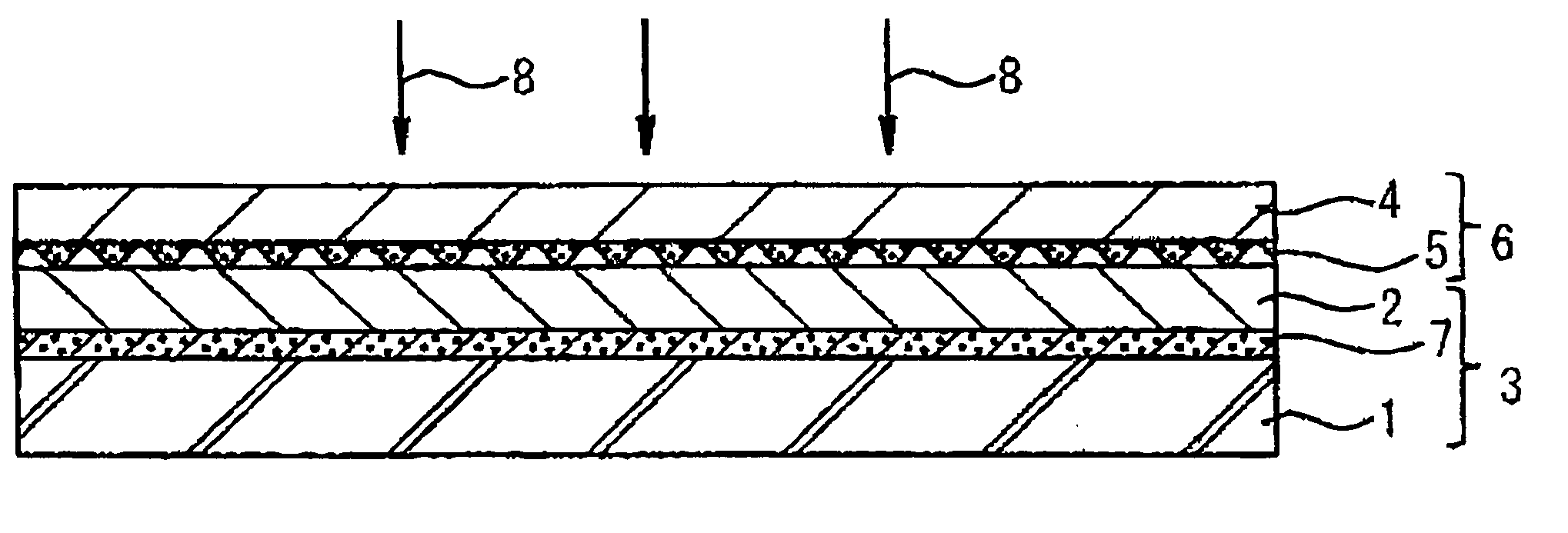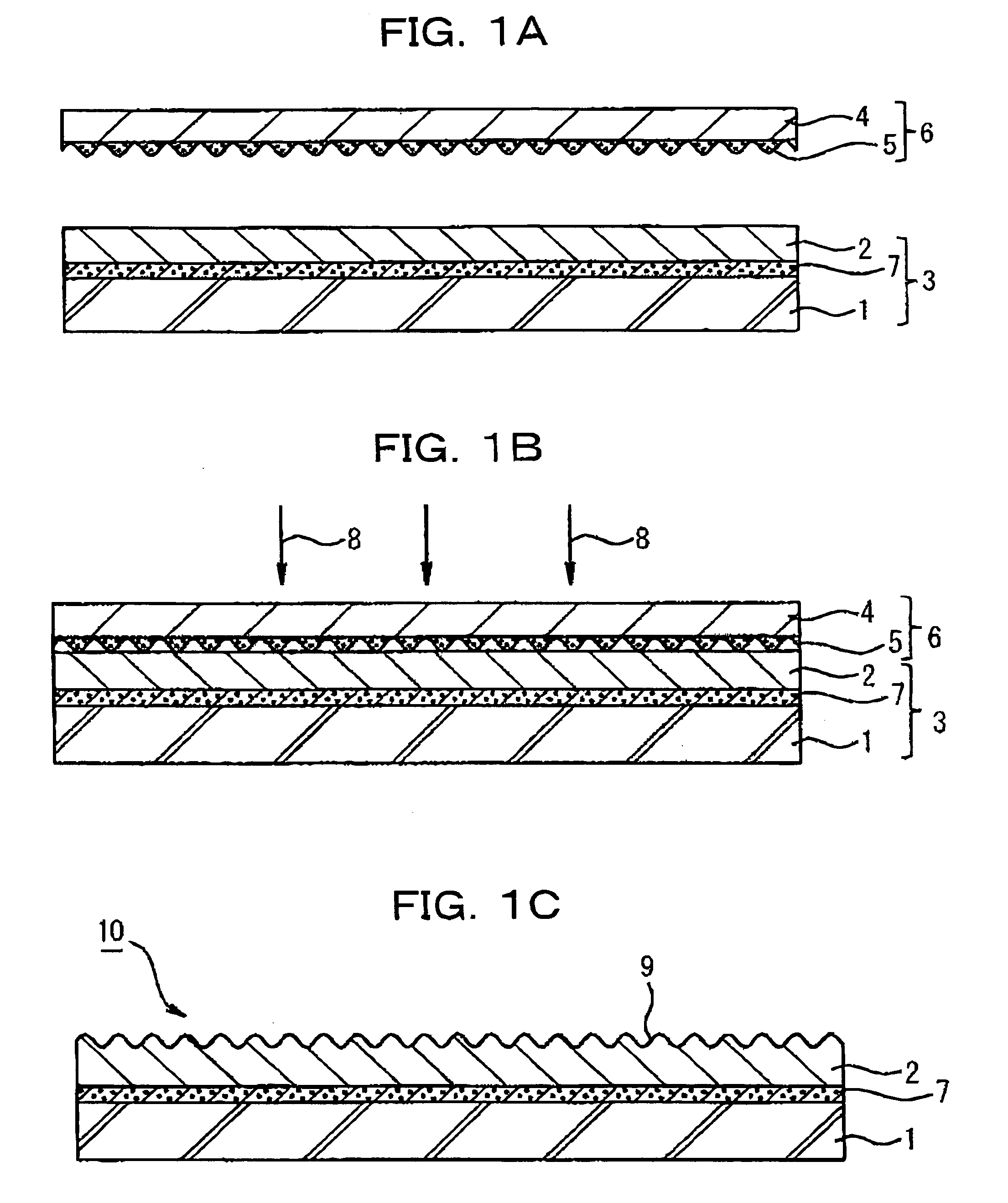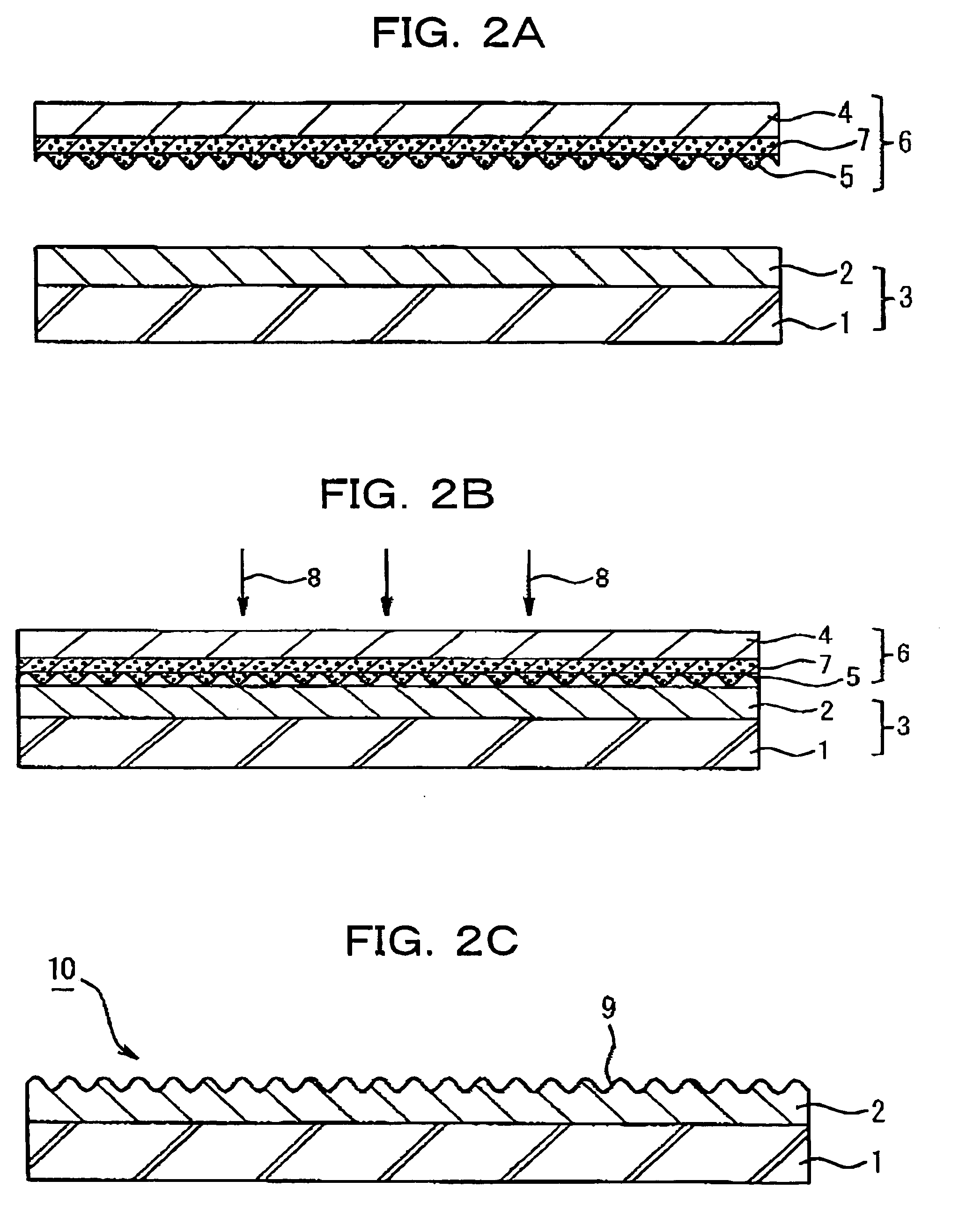Method for forming fine concavo-convex patterns, method for producing optical diffraction structure, and method for copying optical diffraction structure
a concave pattern and pattern technology, applied in the field of fine concave pattern formation, can solve the problems of difficult to apply pressure precisely only to the predetermined fine region, difficult to copy optical diffraction structure, and high cost, and achieve the effect of taking troublesome work, high cost or high cos
- Summary
- Abstract
- Description
- Claims
- Application Information
AI Technical Summary
Benefits of technology
Problems solved by technology
Method used
Image
Examples
example 1
A photothermal conversion layer and UV curable resin layer (not-yet-cured but solid and thermoplastic) were successively formed on the surface of a substrate of a polyethylene terephthalate (PET) sheet. The surface of the not-yet-cured UV curable resin layer and a relief pattern sheet (OVD sheet) in which the diffraction lattice pattern (OVD) as a master hologram was grooved were closely attached by vacuum adsorption method to obtain a laminate.
Next, using semiconductor laser with wavelength of 808.5 nm as the laser, the above-mentioned laminate was set on XY stage while the substrate side being set in the laser irradiation side and the XY stage shown in FIG. 3 was moved to the starting point for drawing. When drawing image was instructed from PC, based on the image drawing program, the XY stage was moved according to the output image pattern so as to move the laser irradiation position and at the same time the irradiation of the IR laser was repeatedly turned on and off to draw ...
example 2
A UV curable resin layer (not-yet-cured but solid and thermoplastic) was formed on the surface of a substrate of a polyethylene terephthalate (PET) sheet, and the surface of the not-yet-cured UV curable resin layer and a relief pattern sheet (OVD sheet) in which the diffraction lattice pattern (OVD) as a master hologram was grooved and the photothermal conversion layer was formed were closely attached by vacuum adsorption method to obtain a laminate and the laminate was irradiated with laser beam in the same manner as described in Example 1 to form the concavo-convex pattern form corresponding to the concavo-convex form of the OVD sheet of the relief pattern sheet on the UV-curable resin layer and a concavo-convex pattern formed body was obtained, in which the concavo-convex pattern of the diffraction lattice was formed on the surface of the substrate sheet. The materials, laser drawing method and apparatus same as those employed in Example 1 were used except that the photothermal ...
PUM
| Property | Measurement | Unit |
|---|---|---|
| length | aaaaa | aaaaa |
| diameter | aaaaa | aaaaa |
| wavelength | aaaaa | aaaaa |
Abstract
Description
Claims
Application Information
 Login to View More
Login to View More - R&D
- Intellectual Property
- Life Sciences
- Materials
- Tech Scout
- Unparalleled Data Quality
- Higher Quality Content
- 60% Fewer Hallucinations
Browse by: Latest US Patents, China's latest patents, Technical Efficacy Thesaurus, Application Domain, Technology Topic, Popular Technical Reports.
© 2025 PatSnap. All rights reserved.Legal|Privacy policy|Modern Slavery Act Transparency Statement|Sitemap|About US| Contact US: help@patsnap.com



